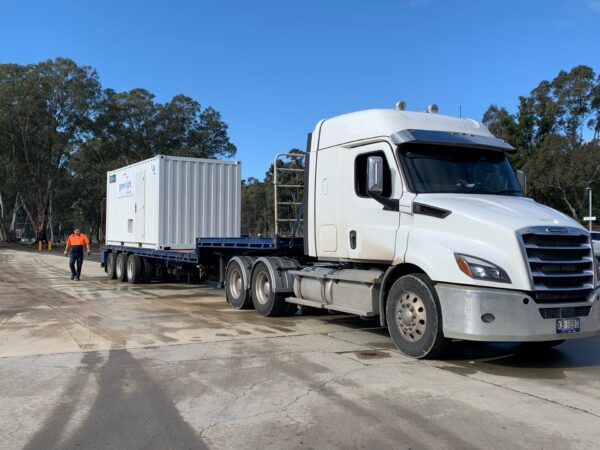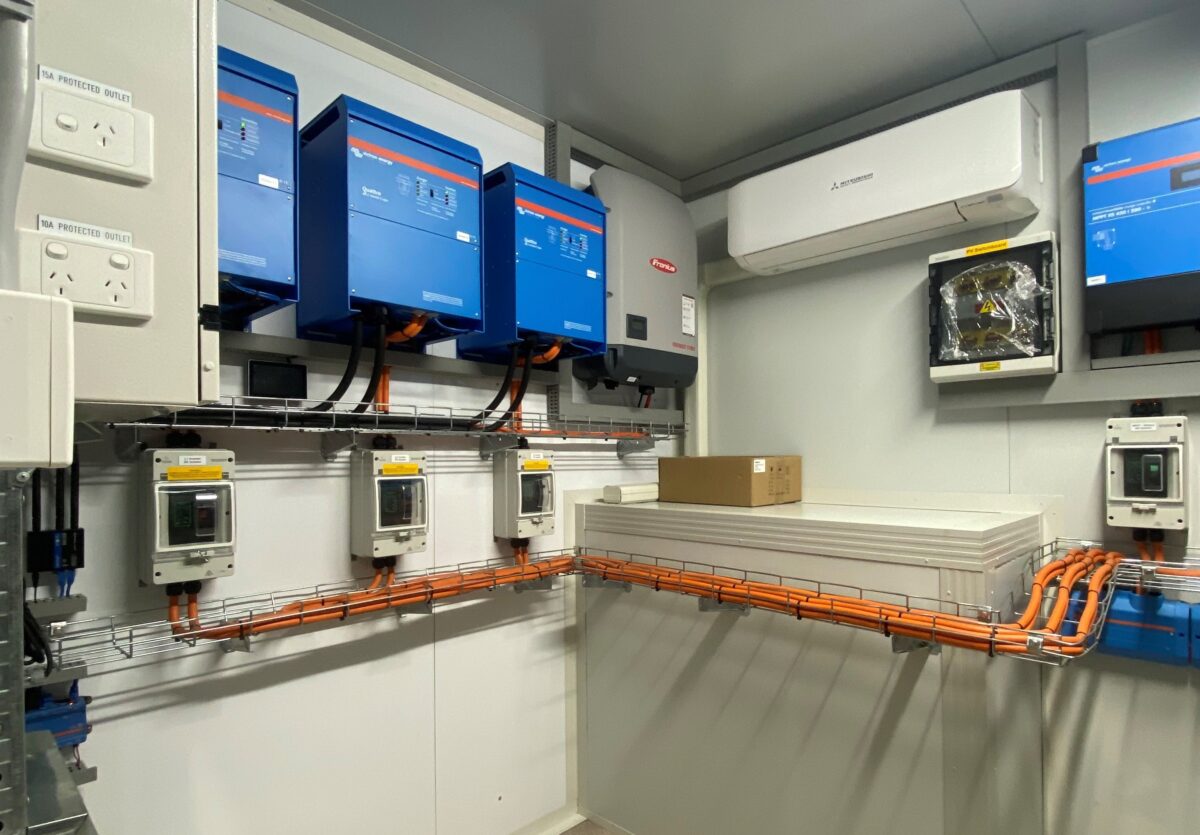Commodore Australia has designed and delivered a commercial off-grid power system comprising a 42 kW solar array coupled with 75 kWh of battery energy storage capacity that the Victorian company said will provide a reliable and sustainable source of power for the Blyth Battery construction site.
French clean energy developer Neoen commenced construction of its grid-scale Blyth Battery project earlier this year with Green Light Contractors, a subsidiary of the Australian arm of Spanish infrastructure development group Elecnor, appointed as balance-of-plant contractor.
Commodore, headquartered at Shepparton in northern Victoria, said Green Light had since sought it out to design and install a solar and storage system that delivers a clean, reliable energy supply while displacing diesel consumption.
The hybrid system comprises a 42 kW ground-mounted solar array with three-phase 30 kVA worth of inverters coupled with a 75 kWh battery energy storage system. The system also includes a 56 kVA back-up generator.
The off-grid solar solution, which is scheduled to commence operations within a “matter of weeks”, will be capable of meeting the site’s power requirements during the day while the battery storage energy system will provide back-up power at night and during inclement weather.

Image: Commodore Australia
Commodore Sales and Marketing Manager Matt Miller said the installation of the system is part of a growing trend for off-grid renewable energy solutions in the construction industry.
“The commercial market for our containerised solutions and Power Skids has come in leaps and bounds in the past three years in particular,” he said. “While interest has been shown previously across mining and other industries in Australia, high diesel prices, CSR (corporate social responsibility) considerations and genuinely great expected return on investments has made off-grid solar a smart option to power most remote sites.”
Miller said he expects the trend will accelerate once more solutions enter job sites, mines and other use cases.
“The return on investment (ROI) of utilising solar and low voltage battery storage/off-grid systems compared to diesel generators is fantastic,” he said. “The general ROI versus running a diesel generator fulltime to run the site is between 4-5 years once you account for regular 250-hour generator service intervals, the cost of diesel and other relevant costs.”
“Not to mention, far less downtime since off-grid systems require far less maintenance than a diesel generator and environmental factors driving corporate social responsibility.”
Miller said the portable nature of the company’s systems also makes them ideal for construction and mining industries, as they can be easily moved from site to site.
The system installed at the Blyth site includes a ground-mounted PV array but many of Commodore’s renewable energy solutions feature the company’s unique layered solar system that allows it to maximise the generation capacity of a shipping container rooftop.
The patented design features up to three “layers” of solar that can slide on top of each other, expand out and lift to about 30 degrees.
The system, which ranges from 5.95 kW per 20ft container to 11.9 kW per 40ft container, is all hydraulic and automated and has been programmed to pack itself up if wind speeds get too high.
This content is protected by copyright and may not be reused. If you want to cooperate with us and would like to reuse some of our content, please contact: editors@pv-magazine.com.









By submitting this form you agree to pv magazine using your data for the purposes of publishing your comment.
Your personal data will only be disclosed or otherwise transmitted to third parties for the purposes of spam filtering or if this is necessary for technical maintenance of the website. Any other transfer to third parties will not take place unless this is justified on the basis of applicable data protection regulations or if pv magazine is legally obliged to do so.
You may revoke this consent at any time with effect for the future, in which case your personal data will be deleted immediately. Otherwise, your data will be deleted if pv magazine has processed your request or the purpose of data storage is fulfilled.
Further information on data privacy can be found in our Data Protection Policy.